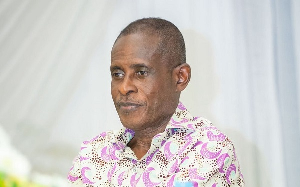-Considers public listing
A highly placed source at the Ghana Community Network Services Ltd (GCNet) has told the Financial Intelligence that GCNet was poised to deliver on the expanded mandate Government of Ghana had given to them.
The source said the company would rise up to the challenge and help plug all loop-holes in the import tax net to ensure maximum revenue mobilization for the government.
The source spoke to this paper shortly after government announced that GCNet was to deploy Valuation modules for Customs Excise and Preventive Service (CEPS) so as to enhance the valuation and validation of Destination Inspection in the import processing sector of the country.
“We appreciate the new confidence government has reposed in us, and consider it a new challenge, but we believe we have the needed capacity to deliver,” the source intimated.
According to this source, the valuation module had been part of the system GCNet deployed for CEPS, however for some strange reasons, CEPS had not activated it for use.
He said government stood to gain so much financially by this decision taken by the President and expressed the hope that other stakeholders would cooperate with GCNet to continue to carry out its mandate to help maximize revenue for the country’s development.
“We have learnt our lessons and so our reporting system would now be made available to all those charged with oversight responsibility for us and our partners for the necessary remedial actions to be taken on cases of misconduct. The source explained further that GCNet formerly was careful in issuing its reports on the operations of CEPS and Destination Inspection Companies (DICs), especially because some top officials of CEPS complained that GCNet had been reporting them to government. “But now, we will not hesitate to provide this information to higher authorities as soon as they are ready so that transparency would become the hallmark of CEPS operations.”
The source lamented that the size of revenue that had been lost to the state through the connivance of CEPS officials and some importers were in some cases three times what government had been scouting for from development partners. “With cooperation from all stakeholders, this situation would be reversed for the good of Ghana,” said the source.
The source also hinted that GCNet had been considering bringing on board additional investors to own part of the company.
According to him, there were two options, either to ask existing shareholders to sell part of their shares to the new investors, or for the company to float additional shares.
This, he said could be done privately or through listing on the Ghana Stock Exchange, and though no firm decision had been taken on this yet, the source believed that it was just a matter of time that this would become a reality. He said when GCNet was first established in 1999, the idea was to get as many institutional investors as possible on board, “but those were the days of high interest rates, and so it was easier for people to make more money on Treasury bills than to invest in a new company whose fate they did not know. Checks at the Registrar General’s Department indicated that the CEPS holds 20% of GCNet shares while the Ghana Shippers Council also holds 10%. Ecobank and Ghana Commercial Bank (GCB) hold 5% each with SGS Laboratories holding 60 % stakes.
Source: Financial Intelligence (www.fighana.com) Justice Lee Adoboe
General News of Tuesday, 1 June 2010
Source: Financial Intelligence
GCNet to live up-to new challenge
Opinions











